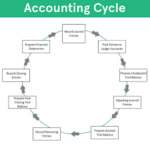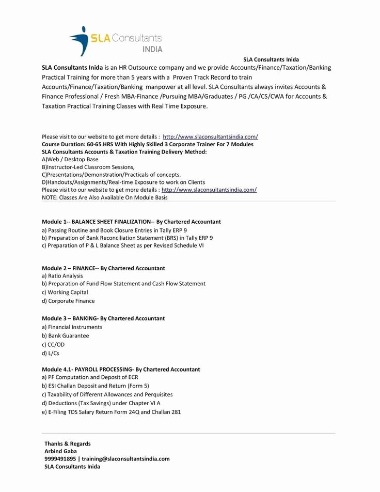
If a business realizes that, based on the above registration requirements, it would not have been mandatory for them to register, they may cancel their registration. To register for New Zealand GST, businesses can apply online through the Inland Revenue Department (IRD) website. The process is relatively straightforward, and businesses will receive a New Zealand GST number upon successful registration. The IVL applies to all visitors with a passport from either a visa-waiver country or a country where you have to apply for a visitor visa to visit New Zealand. The IVL costs NZ$35 and you will pay this either when you request your NZETA or when you apply for your Visitor Visa. There are two “tourist taxes” that visitors are expected to pay, one is mandatory for all visitors while the other depends on what type of visa you are on.
New Zealand GST return filing and penalties
Some rare services are exempt from GST and duty-free will offer items tax-free when landing in New Zealand from an international flight. Refunds in New Zealand will not be paid if they’re to be used to pay any other taxes owed. They will also not be paid if the Inland Revenue is waiting for the business to file an overdue GST return or if any information is missing from the application. If a business realises that, based on the previously stated registration requirements, it would not have been mandatory for it to register, it may cancel its registration. If businesses have a turnover of below NZD 60,000, voluntary registration is allowed in New Zealand.
Speak to our Experts about your Domestic VAT Reclaim potential today.
As a business owner, you must register if your annual turnover (total sales) exceeds $60,000 or is expected to exceed that amount in the next 12 months. You can also register voluntarily if your turnover is below that threshold. You can also claim GST on your purchases if they have GST included in them. This lowers your GST due and can create a GST refund if there is a large purchase (e.g. a vehicle purchase). The obligation to register for GST arises when a business carries out a taxable activity and their turnover direct materials cost exceeds NZ$60,000 in 12 consecutive months or this threshold is expected to be reached in the next 12 months.
- Most small businesses choose to file two-monthly or six-monthly GST returns.
- You may not realise it, but an arrival and departure tax is added to the cost of your flight or cruise ticket to and from New Zealand.
- Expanding your business to New Zealand requires an understanding of its VAT system, known locally as Goods and Services Tax (GST).
- In New Zealand, the GST registration threshold for both resident and non-resident businesses is NZ$60,000 in annual turnover.
- If your company’s taxable turnover exceeds this amount, you must register for New Zealand GST.
- In New Zealand, goods and services tax (GST) is a tax added to the price of most goods and services, including imports, and is charged at the standard rate of 15%.
Requested and approved refunds are paid into a business’s bank account within 15 days. Non-resident GST-registered businesses will not need a New Zealand bank account to receive their refund. You can only claim GST on goods and services to the extent they’re used in your taxable activity to make taxable supplies. You cannot claim GST for supplies you use privately or to make exempt supplies.
Because GST is a tax on all goods and services, it will be applied to almost everything you purchase in New Zealand. That includes food, medication, equipment, going to the hairdressers, the doctors and even the activities you are likely to do as a traveller in New Zealand. We also go over whether it is necessary to tip in New Zealand, as well as advice for international travellers paying taxes for working in New Zealand. Once GST registered, businesses can manage and pay GST online using myGST — a section of the New Zealand Inland Revenue’s online service.

GST for overseas businesses
Receipts can be used to show the New Zealand authorities that GST has been charged and paid. Businesses operating in New Zealand that add GST to the price of their goods or services must also register for GST. Applicable to the supply of certain domestic goods and services, e.g. hotel accommodation for more than 4 weeks. The Inland Revenue is what is a debit and credit bookkeeping basics explained responsible for the administration of the goods and services tax in New Zealand. Plus, for more information on work taxes, check out our guide to the New Zealand Work Tax System.
Missing a New Zealand GST return deadline will result in a fine of NZ$250. Non-resident businesses that sell low-value imported goods — a physical good gross margin vs contribution margin: what’s the difference valued at NZD 1,000 or less — in New Zealand may need to register for, collect, and return GST. Imported goods valued over NZD 1,000 have GST and customs duties charged at the border by the New Zealand Customs Service. On 1 October 2016, the taxation of digital (‘remote’) services supplied by offshore companies (non-New Zealand) to consumers based in New Zealand changed. Once registered for GST, businesses must charge GST to their customers and pay anything that is owed to the New Zealand Inland Revenue. Businesses must also file GST returns at a frequency determined by its sales figures.
Registration is also mandatory if a business charges GST for the goods or services sold. Under certain conditions, backdating a GST registration may be possible upon contacting the Tax Authorities. Xero is a cloud-based accounting software that can help you manage your GST easily and efficiently.
If making taxable supplies is not the principal purpose of the good or service, you cannot claim any GST. If the principal purpose of the good or service is for making taxable supplies, you can claim the full GST amount. Because businesses claim back their input GST, the GST inclusive price is usually irrelevant for business purchasing decisions, other than in relation to cash flow issues. Consequently, wholesalers often state prices exclusive of GST, but must collect the full, GST-inclusive price when they make the sale and account to the IRD for the GST so collected.
Recent Comments